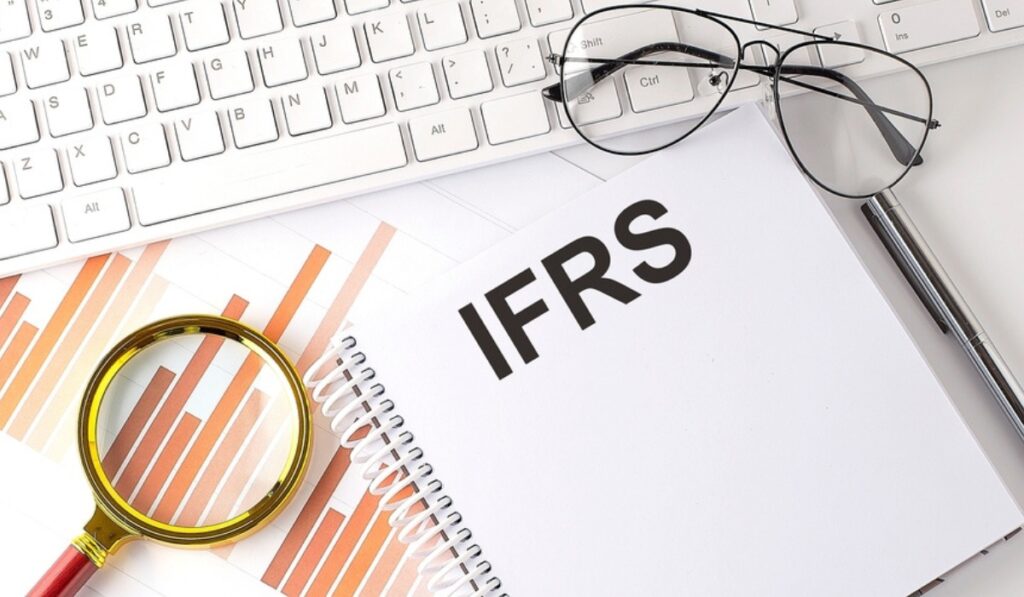The business environment in the United Arab Emirates (UAE) is rapidly evolving, and companies must adapt to global financial reporting standards to remain competitive and compliant. One of the most critical frameworks in this regard is the International Financial Reporting Standards (IFRS). Adopting IFRS is not just a regulatory requirement but a strategic move that enhances financial transparency, credibility, and alignment with global practices. This blog explores the significance of IFRS in the UAE, how it impacts financial reporting and compliance with Corporate Tax (CT) regulations, and the challenges and benefits for UAE businesses transitioning to these standards.
Understanding IFRS and Its Significance in the UAE
The International Financial Reporting Standards (IFRS) are a set of accounting standards developed by the International Accounting Standards Board (IASB). IFRS is designed to bring consistency, transparency, and comparability to financial statements across the globe. For businesses in the UAE, adopting IFRS is crucial as it ensures that financial statements are aligned with international practices, thereby enhancing the credibility and transparency of financial reporting.
In the UAE, the adoption of IFRS is mandatory for most companies, especially those listed on the stock exchanges, including the Dubai Financial Market (DFM) and the Abu Dhabi Securities Exchange (ADX). Moreover, with the UAE’s growing role as a global financial hub, adherence to IFRS has become increasingly important for businesses to attract foreign investment, comply with international regulations, and participate in global markets.
How IFRS Improves Financial Reporting and Compliance with Global Standards
- Enhanced Transparency and Comparability
Adopting IFRS allows UAE companies to present their financial statements in a manner that is easily understood and comparable with those of companies worldwide. This transparency fosters investor confidence and enhances the company’s ability to raise capital in global markets.
- Consistency in Financial Reporting
IFRS provides a standardized framework for financial reporting, ensuring that companies apply consistent accounting policies across their operations. This consistency is particularly beneficial for multinational companies operating in the UAE, as it simplifies the consolidation of financial statements from different jurisdictions.
- Improved Stakeholder Confidence
By adhering to IFRS, UAE companies demonstrate their commitment to high standards of financial reporting, which can improve relationships with stakeholders, including investors, creditors, and regulators. This commitment is crucial in maintaining a positive reputation and securing long-term business success.
How IFRS Adoption Aligns with UAE Corporate Tax (CT) Regulations
The UAE’s introduction of Corporate Tax (CT) has added another layer of complexity to financial reporting for businesses operating in the region. However, adopting IFRS can significantly improve compliance with CT regulations by providing a robust framework for accurate financial reporting.
- Accurate Tax Reporting
IFRS adoption ensures that financial statements reflect the true financial position and performance of a company, which is essential for accurate tax reporting. This accuracy is crucial for calculating taxable income and determining the appropriate tax liability under the UAE’s CT regulations.
- Alignment with Tax Authorities’ Requirements
The UAE’s Federal Tax Authority (FTA) relies on financial statements prepared in accordance with IFRS to assess tax liabilities. Companies that adopt IFRS are better equipped to meet the FTA’s requirements, reducing the risk of disputes and penalties related to tax compliance.
- Streamlined Tax Audits
Companies that adhere to IFRS are likely to experience smoother tax audits, as the standards provide clear guidance on the recognition, measurement, and disclosure of financial transactions. This clarity helps ensure that all relevant information is readily available for tax authorities, facilitating a more efficient audit process.
Challenges and Benefits of Transitioning to IFRS for UAE Businesses
Challenges:
- Implementation Costs and Complexity
Transitioning to IFRS can be a complex and costly process, particularly for companies that have previously used different accounting frameworks. The initial implementation requires significant investment in staff training, system upgrades, and process adjustments.
- Cultural and Organizational Change
Adopting IFRS may require a shift in corporate culture and internal processes. Companies need to ensure that all relevant stakeholders, including management, accounting staff, and auditors, are fully aligned with the new standards.
- Ongoing Compliance and Monitoring
Compliance with IFRS is not a one-time event but an ongoing commitment. Companies must continually monitor changes to the standards and update their financial reporting practices accordingly. This requires dedicated resources and continuous education.
Benefits:
- Global Recognition and Competitiveness
Adopting IFRS enhances a company’s global standing, making it easier to attract international investors and business partners. This global recognition can lead to increased opportunities for growth and expansion.
- Improved Financial Management
IFRS provides a comprehensive framework for financial reporting that can improve the overall management of a company’s finances. This includes better asset management, more accurate forecasting, and enhanced decision-making capabilities.
- Reduced Risk of Non-Compliance
By adopting IFRS, companies reduce the risk of non-compliance with local and international regulations. This proactive approach helps avoid legal penalties, fines, and reputational damage.
Conclusion
Adopting IFRS is a critical step for UAE companies seeking to enhance their financial reporting, comply with Corporate Tax regulations, and maintain competitiveness in a global market. While the transition to IFRS can be challenging, the long-term benefits far outweigh the initial costs. Companies that embrace IFRS will find themselves better positioned to meet the demands of stakeholders, regulators, and investors, ensuring sustained growth and success in the UAE’s dynamic business environment.
At ADMA Consulting & Accounting LLC, we specialize in helping businesses navigate the complexities of IFRS adoption. Our team of experts provides tailored solutions to ensure a smooth transition, enabling your company to achieve full compliance and leverage the advantages of global financial reporting standards.

